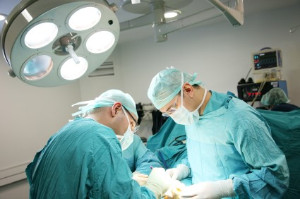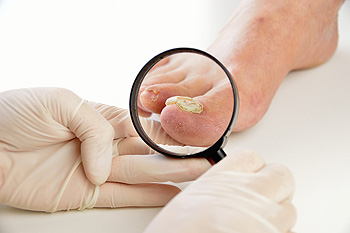Items filtered by date: June 2018
What is the Most Common Place for Falls to Occur?
 If you should experience a fall, it may not only produce physical distress, but can also incur extreme financial costs. Severe injuries may be the result of a fall, and this may aid in the rise of unwanted medical expenses. Unnatural feelings can be produced by falling, and research has shown there are several ways to prevent this from occurring. It’s important to wear shoes that fit correctly, and having slip-resistance soles may aid in the prevention of falls. Unsurprisingly, the environment in the home may account for the majority of falls occurring. This generally results from carpets that may have loosened from the floor or liquids that may have spill, causing the floor to become slippery. It’s important to use a railing while walking up or down the stairs, and utilizing a handrail in the shower may be beneficial in keeping your balance. Incorporating exercise into your daily routine will strengthen the body and may possibly help avoid falling.
If you should experience a fall, it may not only produce physical distress, but can also incur extreme financial costs. Severe injuries may be the result of a fall, and this may aid in the rise of unwanted medical expenses. Unnatural feelings can be produced by falling, and research has shown there are several ways to prevent this from occurring. It’s important to wear shoes that fit correctly, and having slip-resistance soles may aid in the prevention of falls. Unsurprisingly, the environment in the home may account for the majority of falls occurring. This generally results from carpets that may have loosened from the floor or liquids that may have spill, causing the floor to become slippery. It’s important to use a railing while walking up or down the stairs, and utilizing a handrail in the shower may be beneficial in keeping your balance. Incorporating exercise into your daily routine will strengthen the body and may possibly help avoid falling.
Preventing falls among the elderly is very important. If you are older and have fallen or fear that you are prone to falling, consult with Dr. Joshua David Scoll from Pennsylvania. Our doctor will assess your condition and provide you with quality advice and care.
Every 11 seconds, an elderly American is being treated in an emergency room for a fall related injury. Falls are the leading cause of head and hip injuries for those 65 and older. Due to decreases in strength, balance, senses, and lack of awareness, elderly persons are very susceptible to falling. Thankfully, there are a number of things older persons can do to prevent falls.
How to Prevent Falls
Some effective methods that older persons can do to prevent falls include:
- Enrolling in strength and balance exercise program to increase balance and strength
- Periodically having your sight and hearing checked
- Discuss any medications you have with a doctor to see if it increases the risk of falling
- Clearing the house of falling hazards and installing devices like grab bars and railings
- Utilizing a walker or cane
- Wearing shoes that provide good support and cushioning
- Talking to family members about falling and increasing awareness
Falling can be a traumatic and embarrassing experience for elderly persons; this can make them less willing to leave the house, and less willing to talk to someone about their fears of falling. Doing such things, however, will increase the likelihood of tripping or losing one’s balance. Knowing the causes of falling and how to prevent them is the best way to mitigate the risk of serious injury.
If you have any questions, please feel free to contact one of our offices located in Philadelphia, Bensalem, and Fairless Hills, PA . We offer the newest diagnostic and treatment technologies for all your foot care needs.
Surgery for Bunions
 If you experience a bony growth on the side of the big toe, you may have what is referred to as a bunion. This condition may require surgery to be performed, which will generally provide permanent relief. This surgical procedure typically involves removal of the bony protrusion or possibly a restructuring of the toes, which will depend on the severity of the bunion. Surgery will involve undergoing general or local anesthesia, which is determined based on each individual. There may be several ways to perform this type of operation, and it can typically depend on other factors involving the foot, such as any arthritis that may be present. Recovery includes utilizing a bandage or splint so the foot is protected and can rest comfortably. Crutches may be beneficial to use, which can aid in keeping weight off the toe. If you have a bunion and would like additional information about how surgery can be effective for you, please schedule a consultation with a podiatrist.
If you experience a bony growth on the side of the big toe, you may have what is referred to as a bunion. This condition may require surgery to be performed, which will generally provide permanent relief. This surgical procedure typically involves removal of the bony protrusion or possibly a restructuring of the toes, which will depend on the severity of the bunion. Surgery will involve undergoing general or local anesthesia, which is determined based on each individual. There may be several ways to perform this type of operation, and it can typically depend on other factors involving the foot, such as any arthritis that may be present. Recovery includes utilizing a bandage or splint so the foot is protected and can rest comfortably. Crutches may be beneficial to use, which can aid in keeping weight off the toe. If you have a bunion and would like additional information about how surgery can be effective for you, please schedule a consultation with a podiatrist.
Foot surgery is sometimes necessary to treat a foot ailment. To learn more, contact Dr. Joshua David Scoll of Pennsylvania. Our doctor will assist you with all of your foot and ankle needs.
When Is Surgery Necessary?
Foot and ankle surgery is generally reserved for cases in which less invasive, conservative procedures have failed to alleviate the problem. Some of the cases in which surgery may be necessary include:
- Removing foot deformities like bunions and bone spurs
- Severe arthritis that has caused bone issues
- Cosmetic reconstruction
What Types of Surgery Are There?
The type of surgery you receive will depend on the nature of the problem you have. Some of the possible surgeries include:
- Bunionectomy for painful bunions
- Surgical fusion for realignment of bones
- Neuropathy decompression surgery to treat nerve damage
Benefits of Surgery
Although surgery is usually a last resort, it can provide more complete pain relief compared to non-surgical methods and may allow you to finally resume full activity.
Surgical techniques have also become increasingly sophisticated. Techniques like endoscopic surgery allow for smaller incisions and faster recovery times.
If you have any questions please feel free to contact one of our offices located in Philadelphia, Bensalem, and Fairless Hills, PA . We offer the newest diagnostic and treatment technologies for all your foot and ankle needs.
Where Does Toenail Fungus Come From?
There are several symptoms that are noticeable and will determine if you are afflicted by toenail fungus. The toenail will often appear to be a yellowish color and may be thick and rough in texture. In more severe cases, the toenail may lift from the skin or break off completely. Occasionally, small black dots can be seen on the nail, which is typically considered to be dirt that has collected underneath the toenail. This type of fungus generally thrives in warm and moist surroundings and can typically be found in pool areas and saunas. It will benefit the overall health of the toenail if this condition is treated promptly. This may include undergoing a proper diagnosis, followed by medications that can be applied to the nail for mild cases. Extreme situations may call for oral medications to be ingested, despite certain side effects that may follow. If you are afflicted by this ailment, it’s suggested to consult with a podiatrist for additional information and treatment options relative to toenail fungus.
For more information about treatment, contact Dr. Joshua David Scoll of Pennsylvania. Our doctor can provide the care you need to keep you pain-free and on your feet.
Toenail Fungus Treatment
Toenail fungus is a condition that affects many people and can be especially hard to get rid of. Fortunately, there are several methods to go about treating and avoiding it.
Antifungals & Deterrence
Oral antifungal medicine has been shown to be effective in many cases. It is important to consult with a podiatrist to determine the proper regiment for you, or potentially explore other options.
Applying foot powder on the feet and shoes helps keep the feet free of moisture and sweat.
Sandals or open toed shoes – Wearing these will allow air movement and help keep feet dry. They also expose your feet to light, which fungus cannot tolerate. Socks with moisture wicking material also help as well.
If you have any questions please feel free to contact one of our offices located in Philadelphia, Bensalem, and Fairless Hills, PA . We offer the newest diagnostic tools and technology to treat your foot and ankle needs.
How to Alleviate Swollen Ankles During Pregnancy
 If you have swollen ankles and feet during pregnancy, you are among the majority of the population that experience these uncomfortable side effects. An effective way to alleviate severely swollen ankles is to elevate your feet so they are higher than your heart. This technique makes it easier for additional fluids to drain from your legs that may have accumulated during pregnancy. Additionally, lying on your side while sleeping may result in less pressure the veins typically encounter. There can be physical changes that may occur, including feet that increase in size, or a change in the structure of the foot, which may affect the arch. Research has shown the importance of incorporating walking into your daily routine, periodically stretching your legs and including healthy foods in your daily food intake.
If you have swollen ankles and feet during pregnancy, you are among the majority of the population that experience these uncomfortable side effects. An effective way to alleviate severely swollen ankles is to elevate your feet so they are higher than your heart. This technique makes it easier for additional fluids to drain from your legs that may have accumulated during pregnancy. Additionally, lying on your side while sleeping may result in less pressure the veins typically encounter. There can be physical changes that may occur, including feet that increase in size, or a change in the structure of the foot, which may affect the arch. Research has shown the importance of incorporating walking into your daily routine, periodically stretching your legs and including healthy foods in your daily food intake.
Pregnant women with swollen feet can be treated with a variety of different methods that are readily available. For more information about other cures for swollen feet during pregnancy, consult with Dr. Joshua David Scoll from Pennsylvania. Our doctor will attend to all of your foot and ankle needs.
What Foot Problems Can Arise During Pregnancy?
One problem that can occur is overpronation, which occurs when the arch of the foot flattens and tends to roll inward. This can cause pain and discomfort in your heels while you’re walking or even just standing up, trying to support your baby.
Another problem is edema, or swelling in the extremities. This often affects the feet during pregnancy but tends to occur in the later stages.
How Can I Keep My Feet Healthy During Pregnancy?
- Wearing orthotics can provide extra support for the feet and help distribute weight evenly
- Minimize the amount of time spent walking barefoot
- Wear shoes with good arch support
- Wear shoes that allow for good circulation to the feet
- Elevate feet if you experience swelling
- Massage your feet
- Get regular, light exercise, such as walking, to promote blood circulation to the feet
If you have any questions please feel free to contact one of our offices located in Philadelphia, Bensalem, and Fairless Hills, PA . We offer the newest diagnostic and treatment technologies for all your foot and ankle needs.

